They redefined “family values” in a way few could imagine. The guttural sounds and barks emanating from the Whittaker family might seem like a caricature ripped from a deeply offensive hillbilly horror film. But photographer Mark Laita proved that such realities exist, capturing the secluded lives of the Whittakers — known by some as “America’s most inbred family.” This family, residing deep in Appalachia, communicates in grunts and even barks at strangers.
“It was beyond anything I had ever witnessed – truly the most bizarre scenario I’ve ever encountered,” documentarian Mark Laita, 63, reflected on the Konkrete podcast about his initial encounter with the Whittakers.
Their home is nestled in Odd, West Virginia, a remote mountain town with a population of approximately 779 people known for its insularity. Laita has spent considerable time documenting this family, starting in 2009 for his book “Created Equal” and recently revisiting them last year for a spontaneous reunion. He regularly features glimpses into their lives in his podcast “Soft White Underbelly,” a platform with 4.56 million YouTube subscribers dedicated to “interviews and portraits of the human condition.”
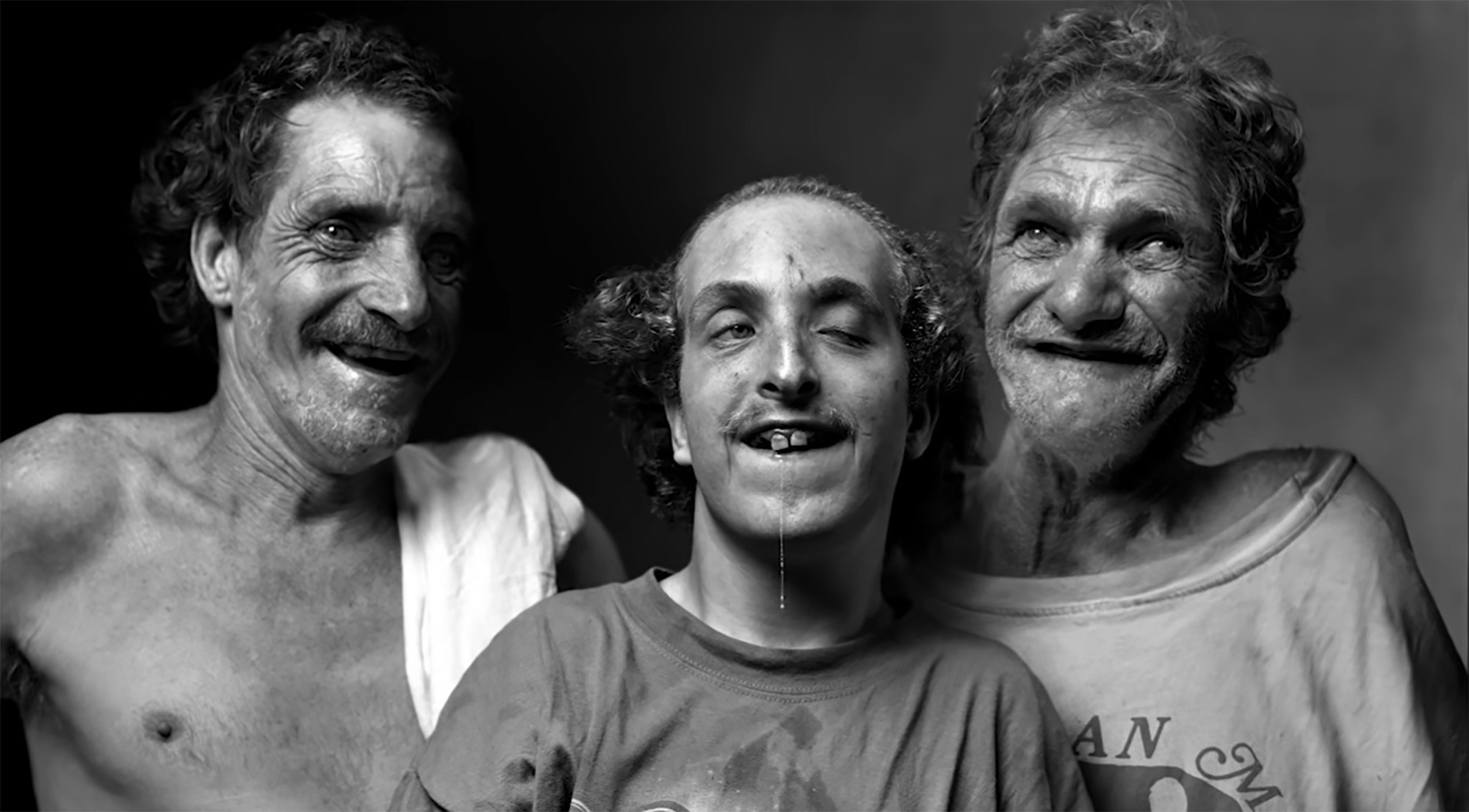 Mark Laita documenting the Whittaker family
Mark Laita documenting the Whittaker family
Photographer Mark Laita’s poignant portrait of the Whittaker family in their West Virginia home, capturing their unique existence for his “Soft White Underbelly” project.
The current Whittaker family consists of siblings Betty, Lorraine, and Ray, alongside their cousin Timmy. Their brother Freddie has passed away due to a heart attack. Reportedly, there is another unnamed sister and other relatives Laita has not yet met.
‘Despite their silence on hardship, their lives are incredibly challenging. These are individuals with visible physical differences, some with eyes that don’t align, and they react to outsiders with barks.’
Mark Laita, sharing his observations on the difficult lives of the Whittaker family in Odd, West Virginia.
Among the remaining siblings, only Timmy completed high school. During his first visit, Laita and his team were met with hostility by a neighbor brandishing a shotgun, demanding they leave the family alone. “They are protective and don’t take kindly to outsiders who might mock them,” Laita explained, who was eventually permitted to take photographs after gaining some trust.
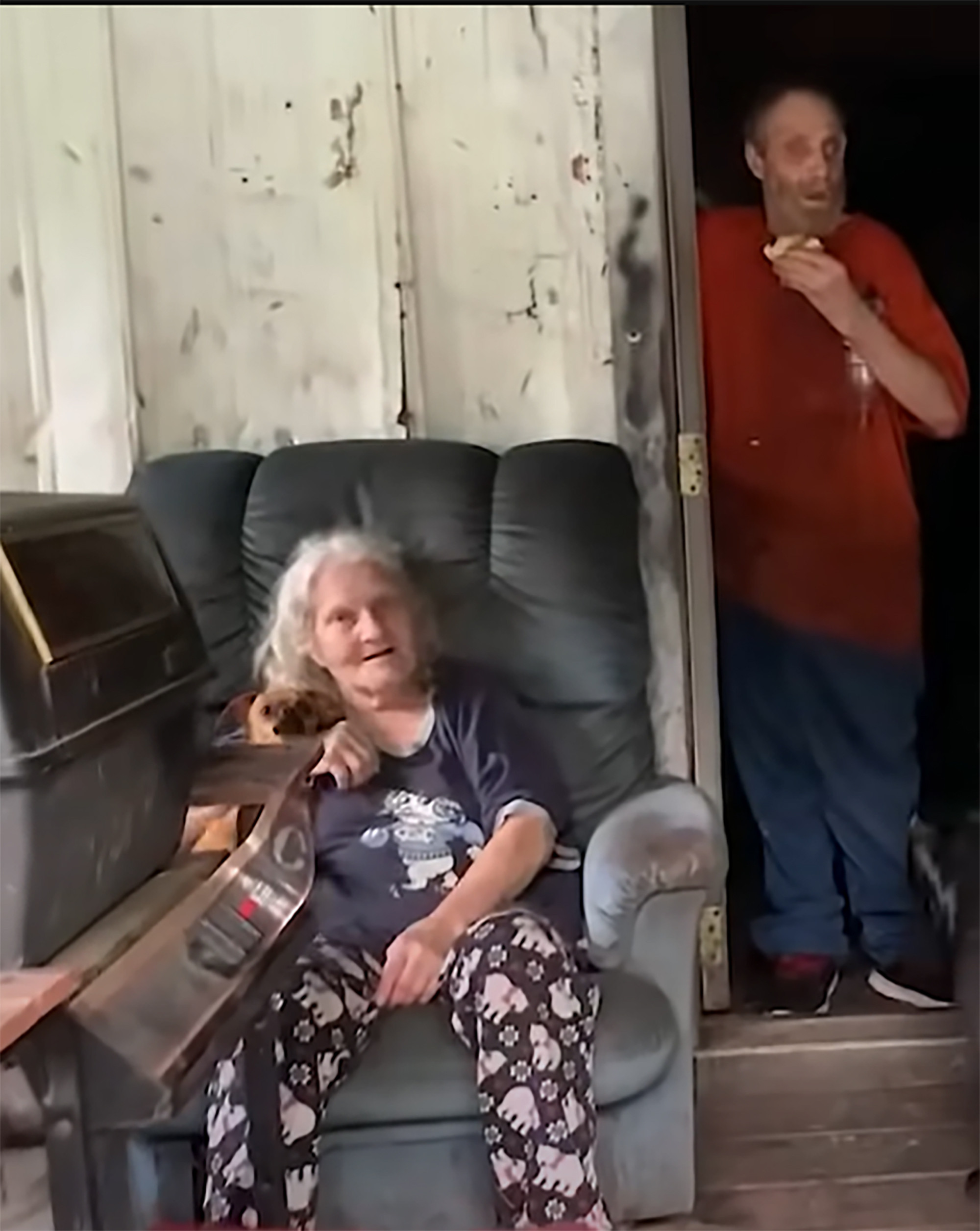 The Whittaker siblings on their porch
The Whittaker siblings on their porch
A candid shot of the Whittaker family members gathered on their porch, highlighting the isolation and poverty prevalent in their Appalachian community.
Laita likened the situation to “Deliverance,” the unsettling 1972 film depicting the darker side of mountain communities. He recounted his astonishment: “You see these people walking around with misaligned eyes, barking at us. One of them, if you made eye contact or spoke, would scream, run away, and his pants would fall down. He’d repeatedly run off to kick a garbage can. It was a cycle.”
Footage from a 2021 visit shows the family on their dilapidated porch, their possessions scattered around, reminiscent of Dust Bowl era imagery. The Whittaker family’s history is deeply intertwined with inbreeding. Initial reports suggested the parents of the three siblings were brother and sister. The family later clarified they were double first cousins, meaning they shared both sets of grandparents.
This close-knit lineage has resulted in significant mental and physical abnormalities. Some family members communicate primarily through grunts and animalistic sounds, as documented in Laita’s videos. Despite their communication challenges, the Whittakers seem to understand questions. “They understand you,” a relative told Laita. “If they disagree, they’ll yell and let you know.”
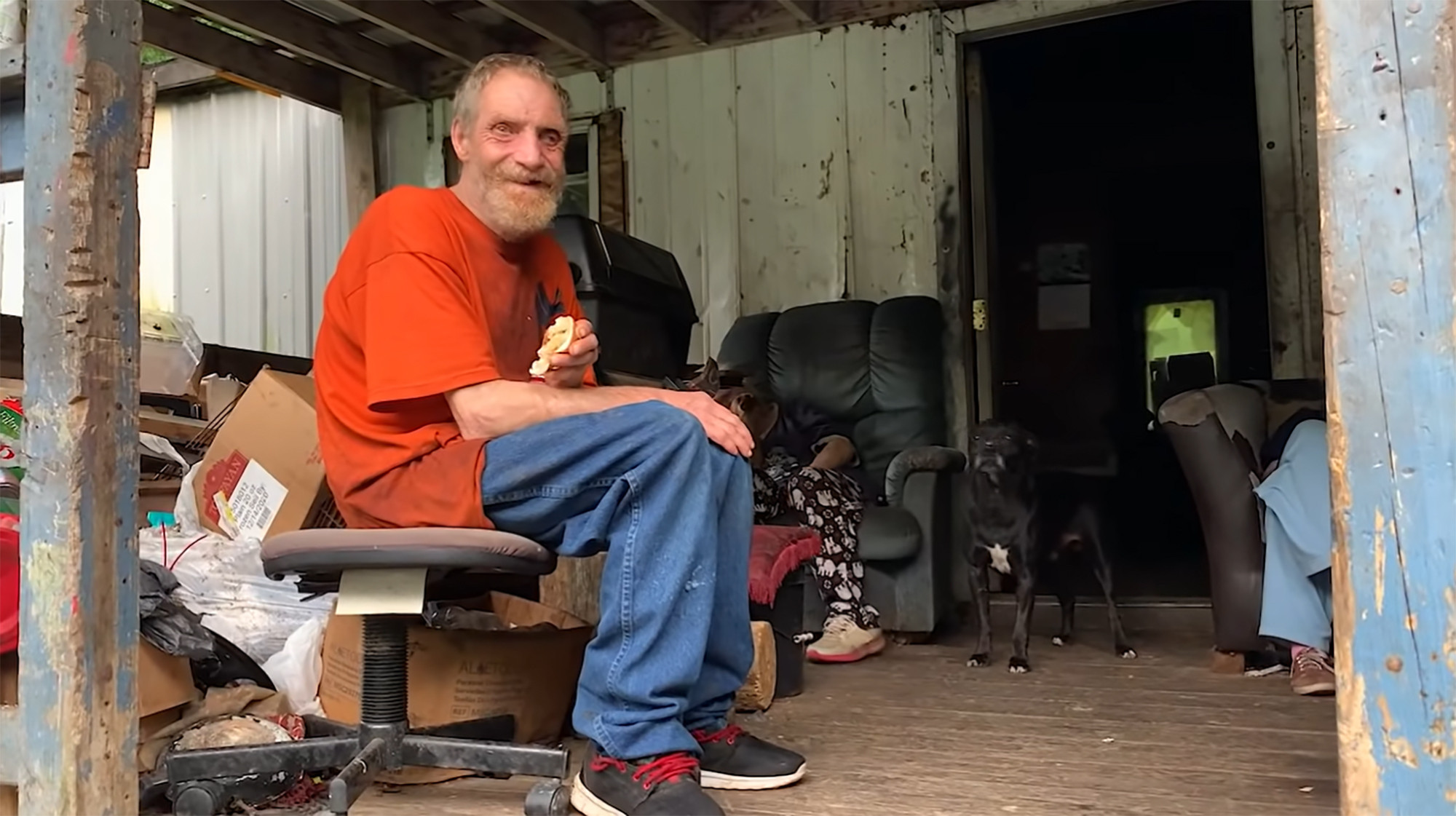 Ray Whittaker sitting outside his home
Ray Whittaker sitting outside his home
Ray Whittaker pictured on his porch in rural West Virginia, a poignant image from the “Soft White Underbelly” documentary series.
According to educational resource Thought.Co, inbreeding can lead to various adverse effects, including reduced size, fertility issues, and a higher risk of genetic disorders. Rarely, it can even cause conditions like methemoglobinemia, leading to blue-tinged skin, as seen in the famous Blue Fugates of Kentucky. When Laita asked Kenneth Whittaker about his eyes not facing forward, Kenneth attributed it to “might be coal mining,” showing a lack of understanding about their genetic conditions.
Critics like Melody West and Shane Simmons of the Real Appalachia YouTube channel have suggested that Laita’s work perpetuates harmful stereotypes about Appalachian communities and inbreeding. They argue it sensationalizes a long-standing negative image.
However, Laita, a commercial photographer who has worked with major brands, stated on Konkrete that his intention was to highlight the extreme poverty faced by families like the Whittakers.
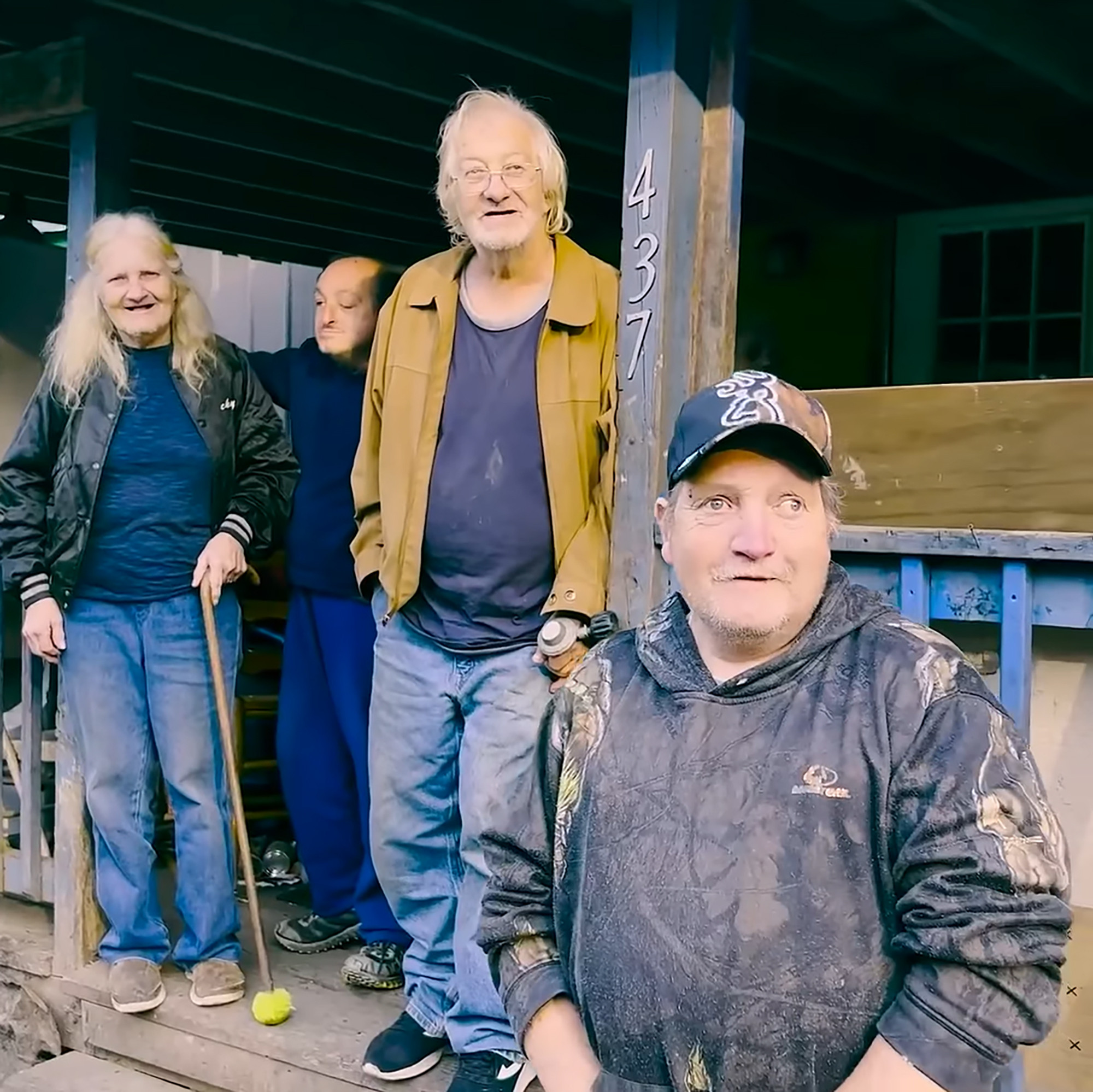 The Whittaker family outside their residence
The Whittaker family outside their residence
The Whittaker family photographed outside their home, illustrating the realities of inbreeding and its potential impact on families in isolated regions.
Laita has established a GoFundMe campaign to support the Whittaker family with living expenses and home improvements, which has raised nearly $50,000 towards a $75,000 goal. In a recent video from 2022, Ray Whittaker proudly showed Laita around their renovated home, now equipped with a refrigerator, a proper bed, and other necessities thanks to the donations. Ray even excitedly pointed out a dent in their new truck from a deer collision.
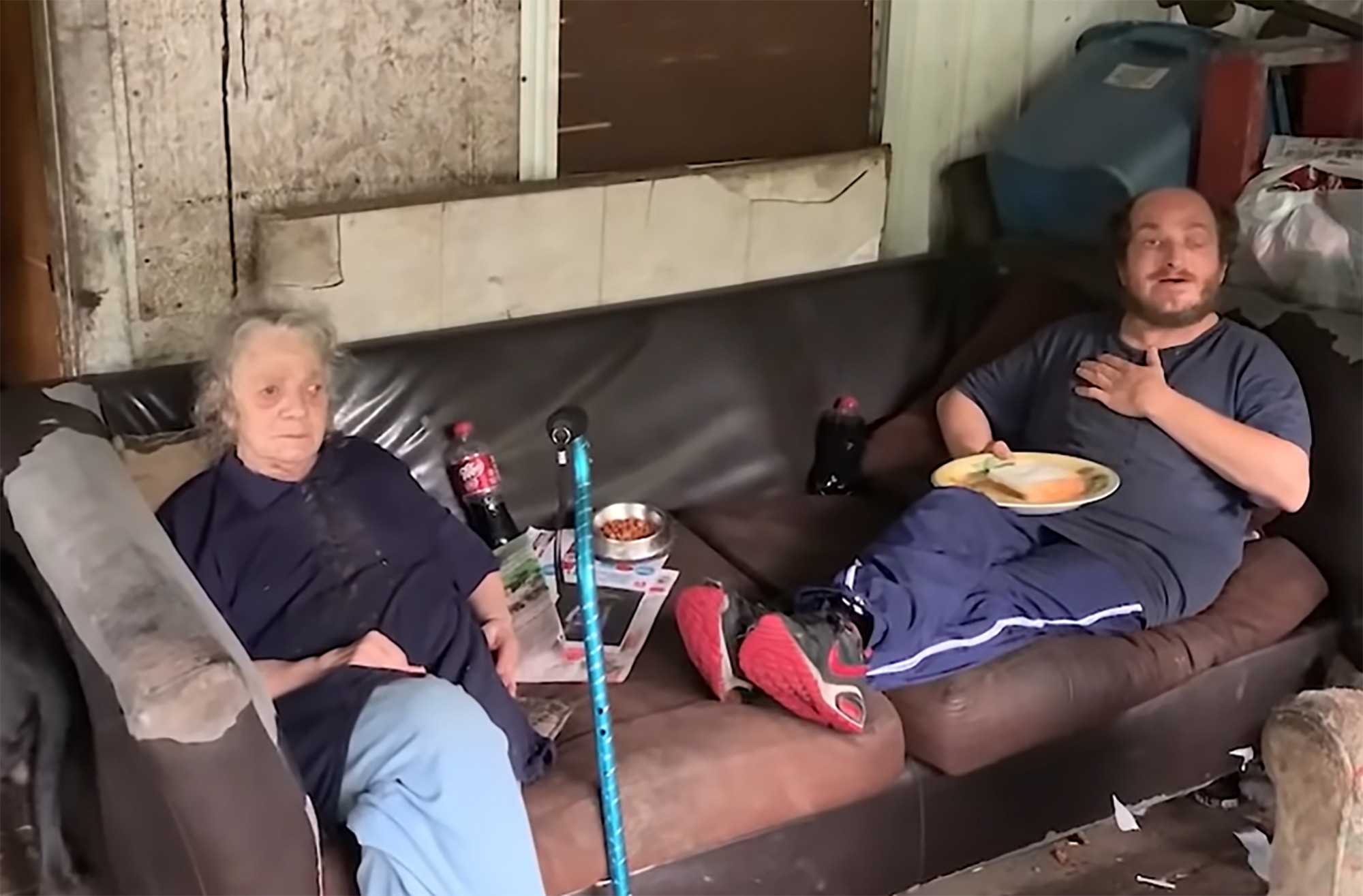 A glimpse inside the Whittaker home
A glimpse inside the Whittaker home
Inside the Whittaker’s renovated home, a testament to community support and Mark Laita’s efforts to improve their living conditions.
Laita emphasizes that his ultimate aim is to bring attention to overlooked communities within America. “People might argue that those in Appalachia live idyllic lives and should be left alone,” he explained. “However, greater support from government or corporations could significantly improve their lives, preventing them from having to scavenge for survival in harsh conditions on minimal income.” He concluded, “Despite their lack of complaint, their existence is undeniably harsh.”


